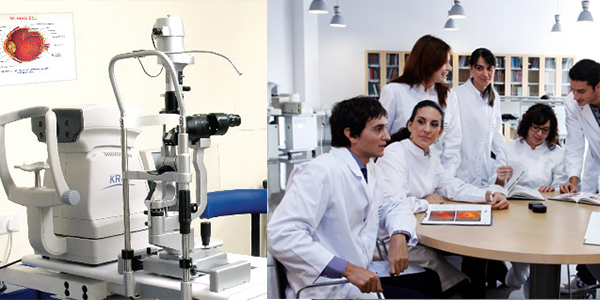
diploma in refractionist and optometry
Diploma in Refractionist and Optometry – Course Details
📌 Overview:
A Diploma in Refraction and Optometry is a 2-year paramedical course designed to train students in diagnosing and managing refractive errors and basic eye disorders. The course combines theoretical knowledge with clinical and practical training.
✅ Eligibility:
-
Educational Qualification: 10+2 (Science stream preferred – Physics, Chemistry, Biology/Mathematics)
-
Minimum Marks: Usually 45-50%
-
Age Limit: 17 years and above
🕒 Duration:
-
Total Duration: 2 Years (Full-time)
-
No semester divisions; Year-wise structure
📍 Career Opportunities:
-
Optometry Clinics
-
Eye Hospitals
-
Optical Shops
-
NGOs and Eye Camps
-
Government Healthcare Centers
-
Can work as a Refractionist, Optometry Assistant, or Ophthalmic Technician
📘 2-Year Syllabus (Year-Wise Structure)
🔹 First Year Subjects:
-
General Anatomy & Physiology
-
Structure and function of human body systems
-
Focus on eye anatomy
-
-
General & Ocular Microbiology
-
Basic microbiology
-
Microorganisms affecting the eye
-
-
General & Ocular Pharmacology
-
Introduction to drugs
-
Drugs used in eye treatment
-
-
Ocular Anatomy and Physiology
-
Eye structure and functions
-
Ocular circulation and innervation
-
-
Optics (Physical and Geometrical)
-
Light, reflection, refraction
-
Mirrors and lenses in optics
-
-
Basic Orthoptics
-
Eye movements and binocular vision
-
-
Clinical Refraction (Introduction)
-
Visual acuity
-
Use of trial frames and lenses
-
🔹 Second Year Subjects:
-
Advanced Clinical Refraction
-
Subjective and objective refraction
-
Retinoscopy, Jackson cross cylinder
-
-
Contact Lenses
-
Types, fitting, care and complications
-
-
Dispensing Optics
-
Spectacle fitting, frames, and lens types
-
-
Common Eye Diseases
-
Cataract, glaucoma, refractive errors, etc.
-
-
Optometric Instruments
-
Use of slit lamp, tonometer, autorefractor, etc.
-
-
Low Vision Aids and Rehabilitation
-
Devices for visually impaired
-
-
Clinical Practicals & Hospital Training
-
Supervised refraction
-
Handling real patients
-
Case reporting
-

